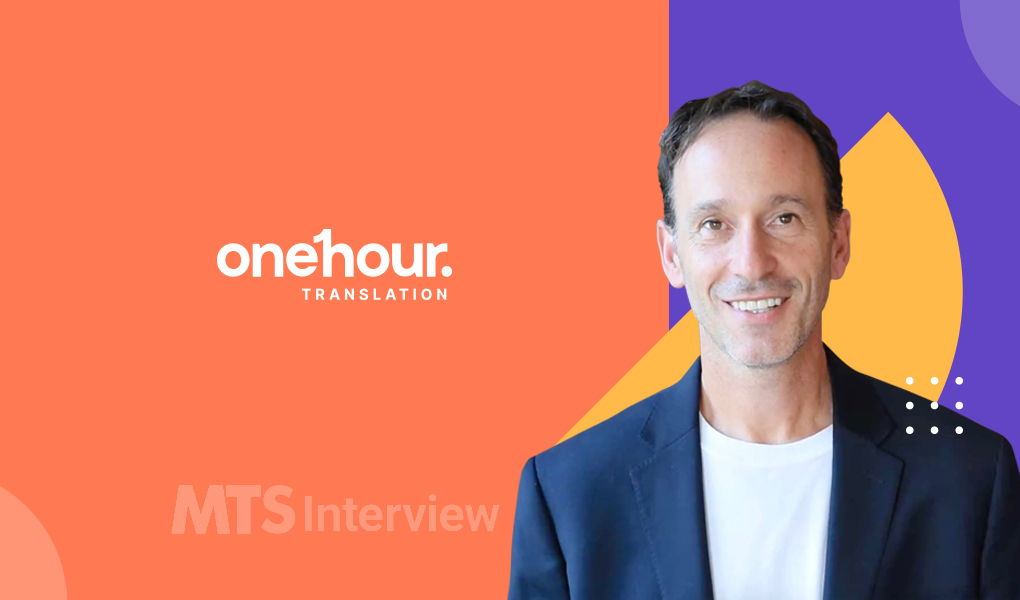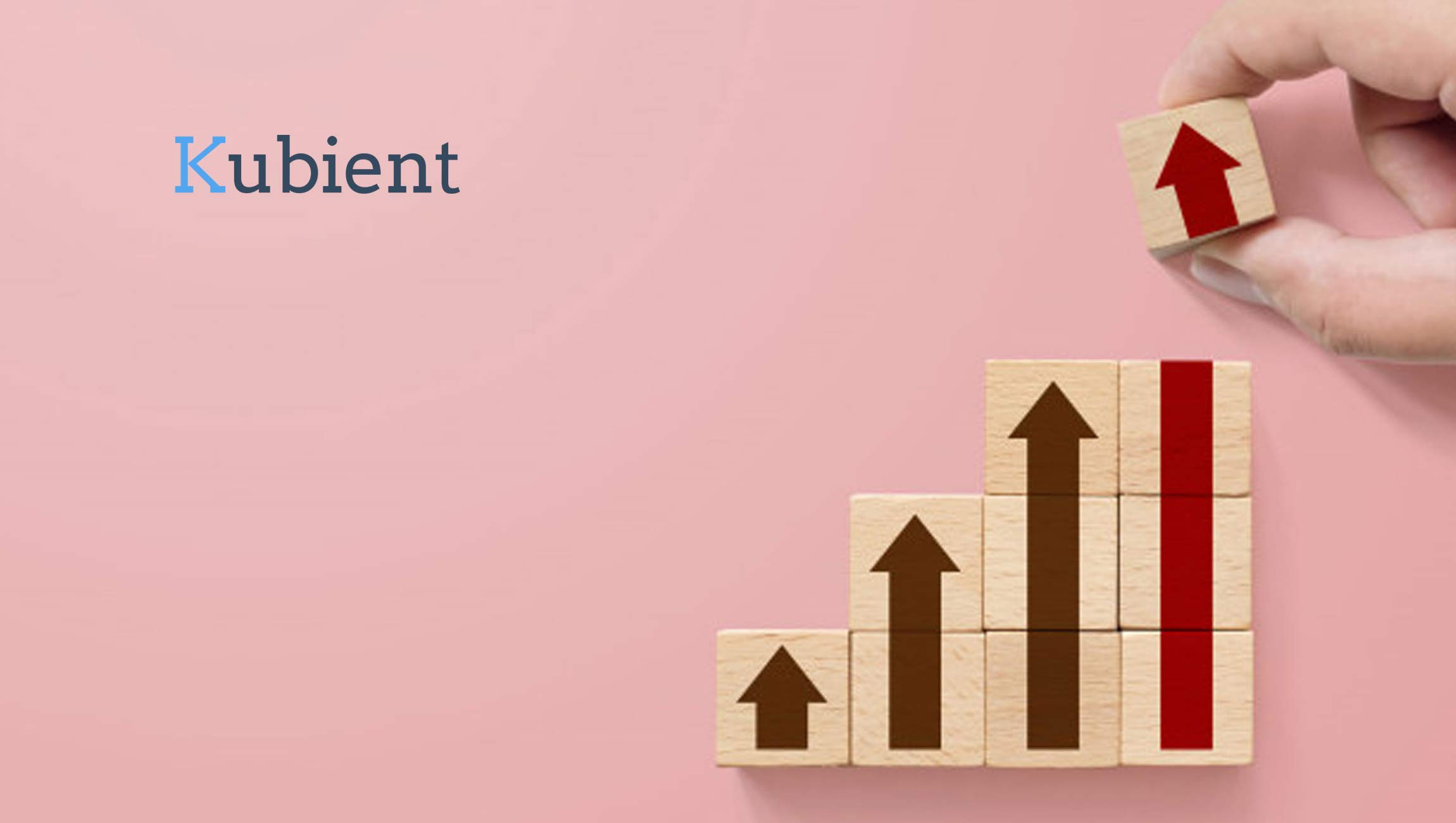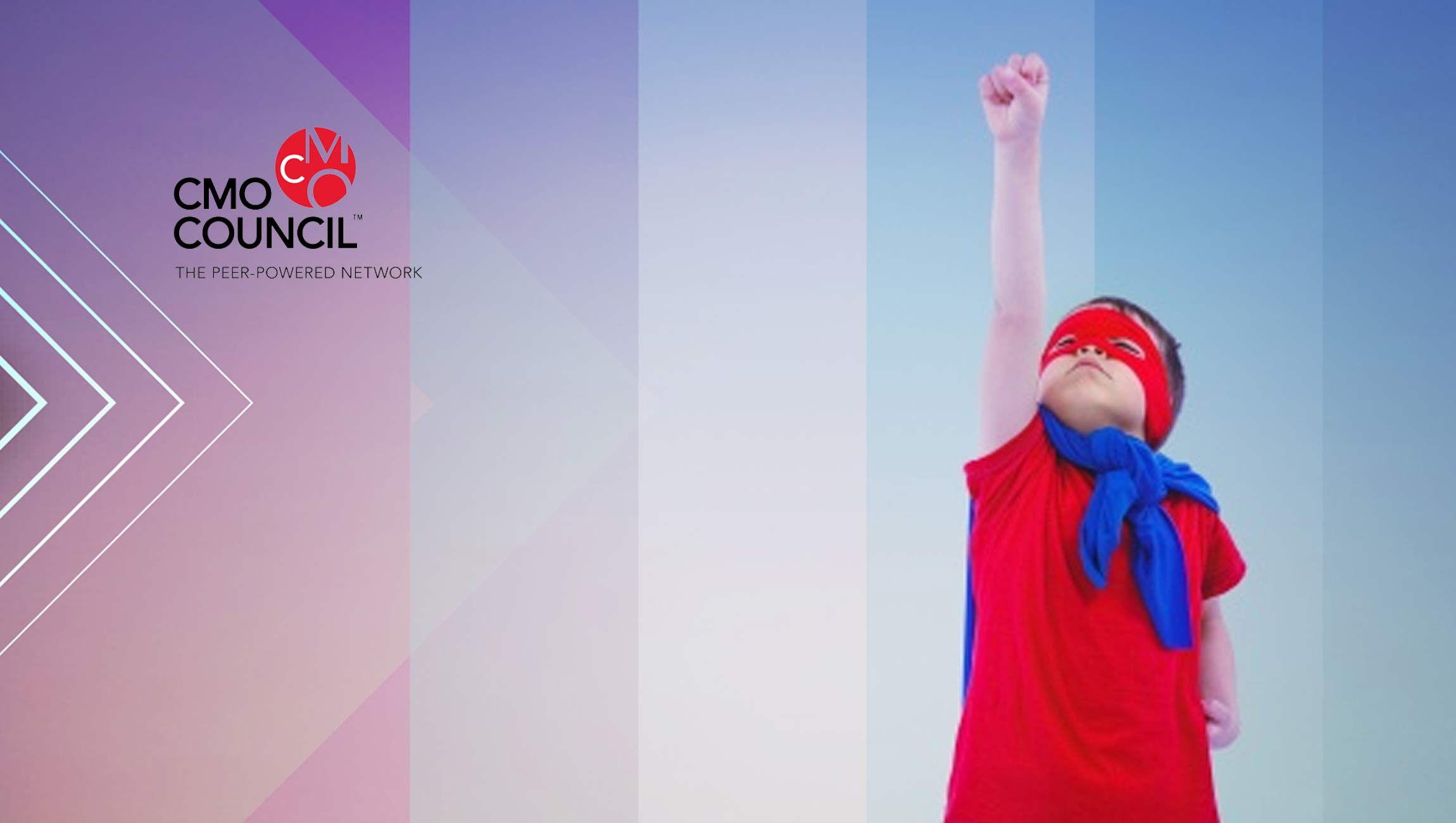“My prioritization of deeply listening to what people have to say, rather than just offering solutions, is what I believe has contributed to my success.”
[/vc_wp_text]
It’s been almost a year since Yair Tal, former SVP Head of Payoneer Enterprise, stepped aboard as CEO of OneHourTranslation. With 12 years of on-the-ground business development experience growing what began as a small payment solution startup into a roaring international success, Yair’s applying his know-how to his role at OHT.
I interviewed Yair to learn a bit more about OHT’s new leader and his strategic plans for the company’s future.
Hi, Yair. Please tell us a bit about your background.
I’m a native-born Israeli, married with three children (and a dog), residing in Tel Aviv.
My family and I travel quite a bit. Within the framework of my previous Global Sales position at Payoneer, we relocated four times to San Francisco, New York, Hong Kong, and back to Tel Aviv.That cross-border experience has had a strong impact in shaping my personal and professional identity to date. Each new location we lived in taught me about differing cultural norms, patterns of interaction, and methods of conducting business – not to mention the many, many destinations I was fortunate to visit on business, and whose norms I observed and learned from.
Whenever I travel, I enjoy taking to the streets of the city I’m visiting in a pair of running shoes. I find it the best way to learn the lay of the local land, plus it has the added benefit of providing fodder for discussions at my day’s business meetings. It’s through the blend of these many varied experiences that I’ve collected much of my business know-how and made the personal connections that have seen me through life.
You mention your previous position at Payoneer. You joined the burgeoning startup in 2007 and left in 2019 once Payoneer had become one of the online payment industry’s leading brand names. Tell us a bit about your role.
I joined Payoneer as a Sales and Business Development Director when the company had just 15 employees. The focus of my role was to grow our sales relationships, as well as provide critical feedback from prospective clients on how the company could better refine their product offering. Revenue increased quite a bit, and three years later, in 2010, I was promoted to Head of EMEA Sales.
I view the sales/client relationship as a symbiotic one. Throughout my 20+ year career, I’ve always prioritized listening to prospective client difficulties, rather than just pitching company service offerings. Doing so enables me to better understand how we as a company can improve our product, and what additional potential services clients are interested in.
In 2013, with three years of proven sales success in Europe and the Middle East, I was named SVP, Head of Payoneer Enterprise. I relocated (with my family) to the Bay Area and headed the company’s Business Development and Sales Departments. During this period, Payoneer Enterprise onboarded numerous cross-industry brand leaders including Amazon, Lazada, Airbnb, Uber, Walmart, Upwork,Booking.com, Home Away, Shutterstock, Adobe, and Rakuten.
The company also successfully tripled Y-O-Y revenue on an annual basis.
Payoneer’s digital payment solution became the industry standard for powering the gig economy’s increasing proliferation of cross-border transactions.
You clearly had an impactful role at the company, directly accelerating their annual growth. What personal skills do you believe most greatly contributed to your professional success?
My prioritization of deeply listening to what people have to say, rather than just offering solutions, is what I believe has contributed to my success. It’s an important trait I grew up with, have taught to my own children, and have passed on professionally to the team members I have been privileged to work with.
In the world of enterprise sales, a relationship is not a one-off sale. It’s a matter of continuous give and take between the client – who seeks solutions – and the provider– who strives to increase revenue by developing profitable new services, features, and offerings.
After 12 successful years at Payoneer, as the company was hitting its zenith, you stepped down and joined OHT on its rise. Why the shift?
I was lucky enough and honored to join Payoneer when almost everything at the company was fresh uncharted territory. When a company is small, you get the benefit of personally interacting with all employees – every programmer, SDR, copywriter, and even (or perhaps most importantly) the person ordering the kitchen cookies.
Having the privilege of being part of a young startup and watching it grow into a successful unicorn was such an incredible experience, that it’s difficult for me to describe in words. Suffice to say I’d like to do it again -to experience all the incredibly exciting ‘firsts’ that come with growing a company. While OHT isn’t exactly a startup, we’re certainly headed in the direction of becoming a unicorn. And more importantly, I once again know the person ordering the chocolate chip cookies.
How did you come to know about OHT?
I encountered (founder) Lior Libman back in 2010, when OHT was seeking a payment solution for its international network of translators, thus becoming a client of Payoneer. Shortly thereafter, the relationship progressed into a symbiotic one as I referred Payoneer’s Marketing team to OHT for help translating multi-market collateral. Over the years, we continuously kept in touch.
When you joined OHT, the company had just parted ways from their previous CEO and stood at a bit of a professional crossroads. What major strategic changes did you make in your 1st 100 days at OHT?
Before introducing any changes, I first took the time to thoroughly understand the status quo. I met with all department heads and decision-makers, processed existing company materials, investigated the company’s positioning, etc.
Based on my company assessment, I then invested resources in the following four areas:
People, People, and People!
Many of OHT’s employees had been with the company since its inception. It was important for me to compliment their strong company knowledge with innovative industry wisdom.
To that effect, we filled several key positions with employees from leading global tech companies such as WeLocalize, MyHeritage, Wix, Fiver, DealHub, and more.
We also introduced a new VP Marketing, VP Product, and Head of Strategy. From day one, the new hires drove positive winds of change thanks to their sharp industry-based insights, and the bright strategic ideas that followed.
Focus on our core.
Seeing as one of the company’s core strengths (alongside its technology) is its freelance pool of international talent, it was important to me to better understand how we can leverage that talent to optimize OHT from both the employee and company perspective.
I, therefore, personally addressed our international network of translators, thanking them for all their hard work to date.
We then polled our translation staff, surveying their skill-sets for services we could potentially offer to provide increased employment opportunities, as well as bolster OHT’s offerings. The survey revealed a goldmine of uncharted talent! Which brings me to my next strategic change…
New services.
Having discovered that our translators were capable of far more than translation alone, I introduced a host of new multi-market expansion services including voice-over, local insight reports, multilingual content writing, and international SEO/ASO. These services have the benefit of positioning OHT as the localization provider for expanding enterprise clients, increasing ‘product’ stickiness, and bolstering our freelancers’ bottom line at the end of the month – a win-win situation for all.
On-the-ground sales.
My last major change was a direct product of my sales experience. Having served in a sales position for so many years, I’ve really come to understand the importance of having an on-the-ground sales crew, in the clients’ time zone, that speaks their native language and possess a similar cultural background that clients can relate to. I, therefore, hired a new sales position in LA (which has since grown to three) as well as in Shanghai -ll with strong backgrounds in localization and sales.
You joined the company at a challenging time – just a few months before the global pandemic hit. Can you tell us a bit about how it has impacted OHT?
From a sales perspective, like many other companies, in March and April when the virus emerged and uncertainty was at its peak, our numbers were negatively impacted. But as the market adapted – and so did we (moving to a hybrid WFH model),the company transitioned into a period of growth.
The effects corona has rendered on the global economy resulted in favorable market conditions for the localization industry. Demand for multi-market services increased at an unprecedented rate as the need to bridge culture and language differences became more important than ever before.
As 2020 is coming to a close, can you share any notable company achievements with us?
We began 2020 by identifying the many areas in which the company required strengthening and improvement. We’re proud to finish the year having enhanced our existing services and developed and rolled out many new ones.
As we enter 2021, we’re now positioned to scale company sales and further diversify our client portfolio rapidly.
And what are your projected growth stats for 2021?
We’re currently closing in on another round of investment, which will enable us to further expand our localization service offerings in 2021.
Our goal is a 30% increase in YOY revenue. To achieve it, we plan to expand our on-the-ground sales presence in China and the US, as well as add a European office.
Tell us about your remote workplace technology stack and how these tools/platforms helped you stay on top of your game.
Our primary tech stack is a combination of human communication methods we drew upon to help survive the insanity together as a team.
These included:
– Daily 9 AM team meetings. These were just as important for setting the daily team agenda as they were for encouraging team members to get out of their pajamas.
– Random coffee breaks. We encouraged team members to schedule biweekly “coffee” breaks (over Microsoft Teams of course) with members of neighboring depts. The idea is to share projects worked on and surface new ideas.
– Monthly Townhall meetings. These took place remotely and included company updates as well as engaging, interactive games on Quizizz.
– 1:1s galore. We purposely piled on extra 1:1s so that no team member would feel lost working alone.
– Creature comforts. To ensure maximum comfort while working from home, we sent OHT employees off with their office chairs, high-quality headphones, new laptops, computer screens, and – perhaps most importantly – additional funds for ordering takeout lunches.
How did the COVID-19 crisis change your business outlook and the way you see human performance under stressful conditions?
At OHT we’re proud to have team diversity spanning gender, region, and age group. The result of this being that COVID affected each of our team members differently.
Parents were struggling to work and care for toddlers, navigate zoom school, or rouse sleeping teenagers. Employees that were living solo were suffering more heavily from isolation, quarantines, and lockdowns.
Yet despite the trying conditions, we found our employees’ resilience, creativity in dealing with varying challenges, and care demonstrated for one another to be simply remarkable.
When COVID first emerged, and much of the disease’s trajectory was still unknown, management held a meeting in which we set a monthly revenue minimum.
We announced the need for salary cuts to ensue, were the minimum not met- 20% from management salaries, 10% from remaining employees.
I’m proud to say that, thanks to the extreme dedication of our employees, cuts occurred exactly once!
A piece of advice for every young professional who is planning to join your industry –
My advice in any industry, particularly B2B, is to listen. The best business development ideas tend to come from the clients themselves. Industry professionals often (fictitiously) believe they hold the ideal solution.
However, I find it is the clients who have the roadmap to opportunity – if only you take the time to listen.
A pro tip: How should CEOs prepare for 2021?
Change tends to drive creativity, whether it be the forces of good change or bad. When situations are “normal,” we tend to miss opportunities for improving traditional workflows or new methods for growing a business.
My advice would be to harness the positive changes COVID brought, even if they came about negatively.
Two such examples at OHT are:
1.The hybrid WFH model – we found it increasingly productive, as well as having a positive impact on work/life balance. As such, we intend to keep the hybrid model, even once corona abates.
2.Office location – before corona, our Israel offices were located in a TLV suburb. With real estate prices declining, we leveraged the opportunity to secure beautiful new TLV offices, locking in rental contract terms for the next few years.
Tell us about your Ideal Customer Profile. Which new industries and geographies are you targeting now?
We serve a wide variety of verticals located in hundreds of regions worldwide.
Catering to such a diverse audience serves as a safety net. When corona hit our hospitality clients hard, we were fortunate to watch our gaming and commerce business revenue increase dramatically.
As corona dragged on, we also won new contracts with a leading e-commerce giant, a Chinese gaming company, and a global web development platform.
Thank you Yair for chatting with us! Hope to see you again at MarTech Series.
Yair Tal is a CEO at OneHourTranslation

OneHourTranslation is the leading provider of on-demand translation and localization solutions. We empower companies to scale their global sales reach with the help of neural machine translation services, international SEO, Local Insight Reports, flexible staffing solutions and more.











